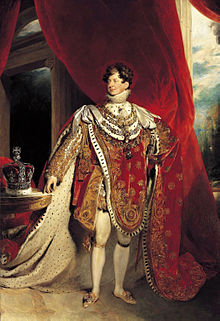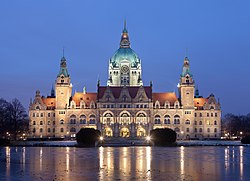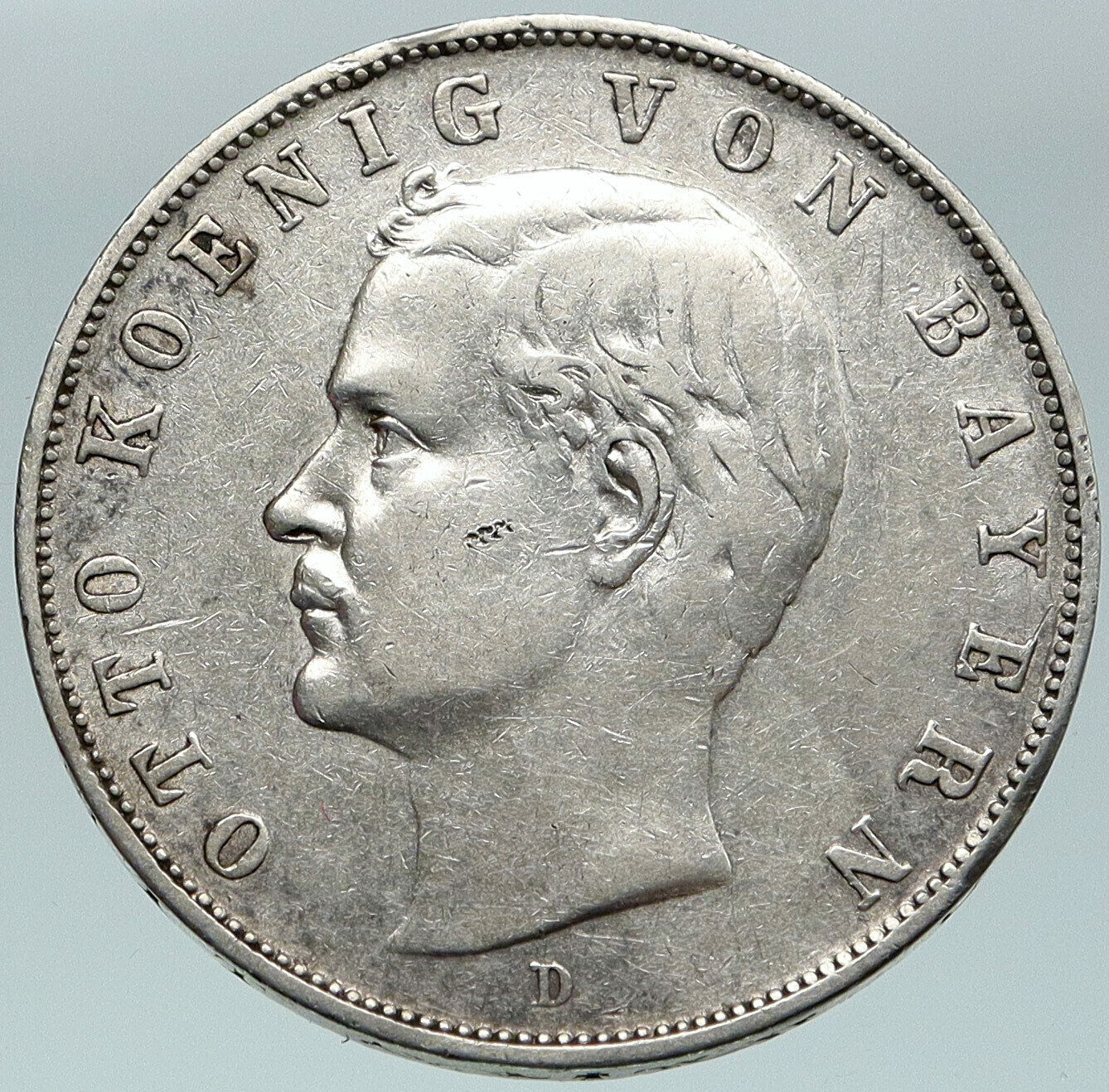|
German State – Hannover – Ruler: George IV
1828
C Silver 2/3 Thaler 33mm (12.90 grams) 0.993 Silver (0.4176 oz. ASW)
Reference: KM# 140, AKS# 40, J# 25a (1826-29)
GEORGIUS IV D G BRITANN ET HANNOV REX F D C, George facing left.
2/3 BRUNSVICENSIS & LUNEBURGENSIS DUX 1828, Stylized denomination.
You are bidding on the exact item pictured, provided with a Certificate of Authenticity and Lifetime Guarantee of Authenticity.
 George IV (George Augustus Frederick; 12 August 1762 – 26 June 1830) was King of the United Kingdom of Great Britain and Ireland and King of Hanover following the death of his father, King George III, on 29 January 1820, until his own death ten years later. From 1811 until his accession, he served as Prince Regent during his father’s final mental illness. George IV (George Augustus Frederick; 12 August 1762 – 26 June 1830) was King of the United Kingdom of Great Britain and Ireland and King of Hanover following the death of his father, King George III, on 29 January 1820, until his own death ten years later. From 1811 until his accession, he served as Prince Regent during his father’s final mental illness.
George IV led an extravagant lifestyle that contributed to the fashions of the Regency era. He was a patron of new forms of leisure, style and taste. He commissioned John Nash to build the Royal Pavilion in Brighton and remodel Buckingham Palace, and Sir Jeffry Wyattville to rebuild Windsor Castle.
His charm and culture earned him the title “the first gentleman of England”, but his dissolute way of life and poor relationships with his parents and his wife, Caroline of Brunswick, earned him the contempt of the people and dimmed the prestige of the monarchy. He forbade Caroline to attend his coronation and asked the government to introduce the unpopular Pains and Penalties Bill in a desperate, unsuccessful attempt to divorce her.
For most of George’s regency and reign, Lord Liverpool controlled the government as Prime Minister. George’s ministers found his behaviour selfish, unreliable and irresponsible. At all times he was much under the influence of favourites.[1] Taxpayers were angry at his wasteful spending during the Napoleonic Wars. He did not provide national leadership in time of crisis, nor act as a role model for his people. Liverpool’s government presided over Britain’s ultimate victory, negotiated the peace settlement, and attempted to deal with the social and economic malaise that followed. After Liverpool’s retirement, George was forced to accept Catholic emancipation despite opposing it. His only legitimate child, Princess Charlotte, died before him in 1817 and so he was succeeded by his younger brother, William.
Hanover or Hannover is the capital and largest city of the German federal state of Lower Saxony, and its 535,061 (2017) inhabitants make it the thirteenth largest city of Germany, as well as the third-largest city of Northern Germany after Hamburg and Bremen. The city lies at the confluence of the River Leine (progression: Aller→ Weser→ North Sea) and its tributary Ihme, in the south of the North German Plain, and is the largest city of the Hannover-Braunschweig-Göttingen-Wolfsburg Metropolitan Region. It is the fifth-largest city in the Low German dialect area after Hamburg, Dortmund, Essen, and Bremen.
 Before it became the capital of Lower Saxony in 1946, Hanover was the capital of the Principality of Calenberg (1636-1692), the Electorate of Brunswick-Lüneburg (1692-1814), the Kingdom of Hanover (1814-1866), the Province of Hanover of the Kingdom of Prussia (1868-1918), the Province of Hanover of the Free State of Prussia (1918-1946), and of the State of Hanover (1946). From 1714 to 1837, Hanover was by personal union the family seat of the Hanoverian Kings of the United Kingdom of Great Britain and Ireland, under their title of the dukes of Brunswick-Lüneburg (later described as the Elector of Hanover). Before it became the capital of Lower Saxony in 1946, Hanover was the capital of the Principality of Calenberg (1636-1692), the Electorate of Brunswick-Lüneburg (1692-1814), the Kingdom of Hanover (1814-1866), the Province of Hanover of the Kingdom of Prussia (1868-1918), the Province of Hanover of the Free State of Prussia (1918-1946), and of the State of Hanover (1946). From 1714 to 1837, Hanover was by personal union the family seat of the Hanoverian Kings of the United Kingdom of Great Britain and Ireland, under their title of the dukes of Brunswick-Lüneburg (later described as the Elector of Hanover).
The city is a major crossing point of railway lines and highways (Autobahnen), connecting European main lines in both the east-west (Berlin-Ruhr area/Düsseldorf/Cologne) and north-south (Hamburg-Frankfurt/Stuttgart/Munich) directions. Hannover Airport lies north of the city, in Langenhagen, and is Germany’s ninth-busiest airport. The city’s most notable institutions of higher education are the Hannover Medical School with its university hospital (Klinikum der Medizinischen Hochschule Hannover), and the University of Hanover.
The Hanover fairground, due to numerous extensions, especially for the Expo 2000, is the largest in the world. Hanover hosts annual commercial trade fairs such as the Hanover Fair and the CeBIT. The IAA Commercial Vehicles show takes place every two years. It is the world’s leading trade show for transport, logistics and mobility. Every year Hanover hosts the Schützenfest Hannover, the world’s largest marksmen’s festival, and the Oktoberfest Hannover.
“Hanover” is the traditional English spelling. The German spelling (with a double n) is becoming more popular in English; recent editions of encyclopedias prefer the German spelling, and the local government uses the German spelling on English websites. The English pronunciation, with stress on the first syllable, is applied to both the German and English spellings, which is different from German pronunciation, with stress on the second syllable and a long second vowel. The traditional English spelling is still used in historical contexts, especially when referring to the British House of Hanover.
|





 George IV (George Augustus Frederick; 12 August 1762 – 26 June 1830) was King of the United Kingdom of Great Britain and Ireland and King of Hanover following the death of his father, King George III, on 29 January 1820, until his own death ten years later. From 1811 until his accession, he served as Prince Regent during his father’s final mental illness.
George IV (George Augustus Frederick; 12 August 1762 – 26 June 1830) was King of the United Kingdom of Great Britain and Ireland and King of Hanover following the death of his father, King George III, on 29 January 1820, until his own death ten years later. From 1811 until his accession, he served as Prince Regent during his father’s final mental illness.  Before it became the capital of Lower Saxony in 1946, Hanover was the capital of the Principality of Calenberg (1636-1692), the Electorate of Brunswick-Lüneburg (1692-1814), the Kingdom of Hanover (1814-1866), the Province of Hanover of the Kingdom of Prussia (1868-1918), the Province of Hanover of the Free State of Prussia (1918-1946), and of the State of Hanover (1946). From 1714 to 1837, Hanover was by personal union the family seat of the Hanoverian Kings of the United Kingdom of Great Britain and Ireland, under their title of the dukes of Brunswick-Lüneburg (later described as the Elector of Hanover).
Before it became the capital of Lower Saxony in 1946, Hanover was the capital of the Principality of Calenberg (1636-1692), the Electorate of Brunswick-Lüneburg (1692-1814), the Kingdom of Hanover (1814-1866), the Province of Hanover of the Kingdom of Prussia (1868-1918), the Province of Hanover of the Free State of Prussia (1918-1946), and of the State of Hanover (1946). From 1714 to 1837, Hanover was by personal union the family seat of the Hanoverian Kings of the United Kingdom of Great Britain and Ireland, under their title of the dukes of Brunswick-Lüneburg (later described as the Elector of Hanover). 




